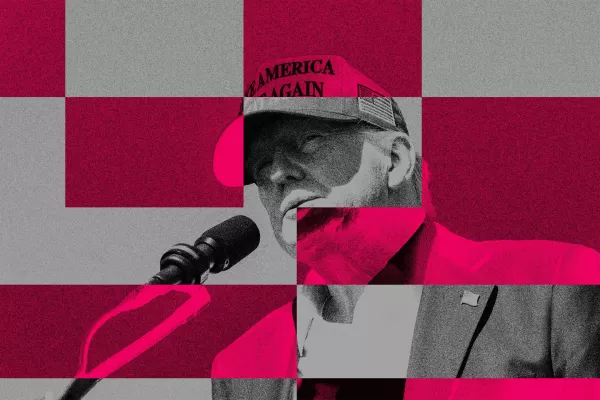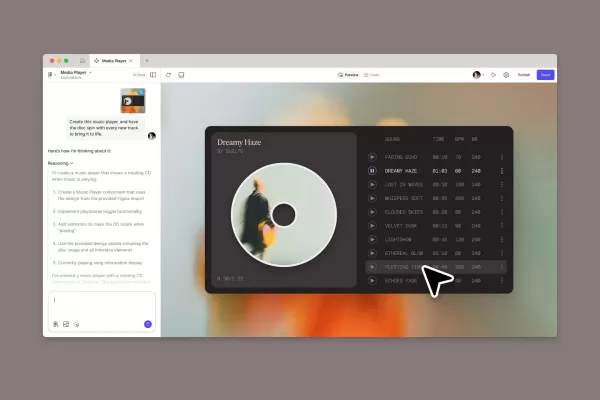US to Sanction Foreign Officials Over Social Media Regulations

US Takes Stand Against Global Digital Content Regulations
The State Department issued a sharp diplomatic rebuke this week targeting European digital governance policies, signaling escalating tensions over control of online platforms. Secretary Marco Rubio unveiled a new visa restriction policy targeting foreign officials involved in what the US considers censorship overreach affecting American digital spaces.
New Visa Restrictions Explained
Under the policy announced Wednesday, the US will deny entry to foreign nationals judged to be enforcing overseas content regulations that impact protected speech in the United States. Rubio emphasized two key violations:
"Foreign governments cannot issue arrest warrants for U.S. citizens over social media posts made while physically present in America, nor can they compel American tech companies to implement global content moderation policies that reach into our sovereign digital territory."
The European Digital Services Act Connection
While not named explicitly in the announcement, experts immediately recognized the 2023 Digital Services Act (DSA) as the likely target. The landmark EU legislation establishes standardized rules for major platforms regarding illegal content removal and moderation transparency.
White House officials, including Vice President JD Vance, have previously criticized the DSA as regulatory overreach. The State Department's Substack platform currently features an article authored by human rights advisor Samuel Samson that condemns the DSA's enforcement mechanisms:
"European regulators now police American social media giants with threats of massive fines for violating their speech codes," Samson wrote. "This amounts to Orwellian censorship of dissenting voices."
Administration's Complex Free Speech Record
The Trump administration's hardline stance comes amid its own controversial history with speech issues. Government agencies have reportedly removed diversity-related terminology under political pressure, while the White House famously blocked The Associated Press from press briefings during a naming dispute over the Gulf of Mexico.
Rubio framed the visa policy as protecting constitutional principles: "We will defend American sovereignty against foreign attempts to undermine our First Amendment freedoms." Observers note the move sets up a potential showdown with EU regulators as both sides claim authority over global digital platforms.
Related article
 Anthropic Resolves Legal Case Over AI-Generated Book Piracy
Anthropic has reached a resolution in a significant copyright dispute with US authors, agreeing to a proposed class action settlement that avoids a potentially costly trial. The agreement, filed in court documents this Tuesday, stems from allegations
Anthropic Resolves Legal Case Over AI-Generated Book Piracy
Anthropic has reached a resolution in a significant copyright dispute with US authors, agreeing to a proposed class action settlement that avoids a potentially costly trial. The agreement, filed in court documents this Tuesday, stems from allegations
 Figma Releases AI-Powered App Builder Tool to All Users
Figma Make, the innovative prompt-to-app development platform unveiled earlier this year, has officially exited beta and rolled out to all users. This groundbreaking tool joins the ranks of AI-powered coding assistants like Google's Gemini Code Assis
Figma Releases AI-Powered App Builder Tool to All Users
Figma Make, the innovative prompt-to-app development platform unveiled earlier this year, has officially exited beta and rolled out to all users. This groundbreaking tool joins the ranks of AI-powered coding assistants like Google's Gemini Code Assis
 Microsoft's Next-Gen Xbox Features AMD Chip and Open Store Policy
Microsoft has officially unveiled its collaboration with AMD to develop next-generation Xbox hardware, signaling a bold new direction for its gaming ecosystem. Xbox President Sarah Bond revealed the partnership in a YouTube announcement, detailing pl
Comments (0)
0/200
Microsoft's Next-Gen Xbox Features AMD Chip and Open Store Policy
Microsoft has officially unveiled its collaboration with AMD to develop next-generation Xbox hardware, signaling a bold new direction for its gaming ecosystem. Xbox President Sarah Bond revealed the partnership in a YouTube announcement, detailing pl
Comments (0)
0/200

US Takes Stand Against Global Digital Content Regulations
The State Department issued a sharp diplomatic rebuke this week targeting European digital governance policies, signaling escalating tensions over control of online platforms. Secretary Marco Rubio unveiled a new visa restriction policy targeting foreign officials involved in what the US considers censorship overreach affecting American digital spaces.
New Visa Restrictions Explained
Under the policy announced Wednesday, the US will deny entry to foreign nationals judged to be enforcing overseas content regulations that impact protected speech in the United States. Rubio emphasized two key violations:
"Foreign governments cannot issue arrest warrants for U.S. citizens over social media posts made while physically present in America, nor can they compel American tech companies to implement global content moderation policies that reach into our sovereign digital territory."
The European Digital Services Act Connection
While not named explicitly in the announcement, experts immediately recognized the 2023 Digital Services Act (DSA) as the likely target. The landmark EU legislation establishes standardized rules for major platforms regarding illegal content removal and moderation transparency.
White House officials, including Vice President JD Vance, have previously criticized the DSA as regulatory overreach. The State Department's Substack platform currently features an article authored by human rights advisor Samuel Samson that condemns the DSA's enforcement mechanisms:
"European regulators now police American social media giants with threats of massive fines for violating their speech codes," Samson wrote. "This amounts to Orwellian censorship of dissenting voices."
Administration's Complex Free Speech Record
The Trump administration's hardline stance comes amid its own controversial history with speech issues. Government agencies have reportedly removed diversity-related terminology under political pressure, while the White House famously blocked The Associated Press from press briefings during a naming dispute over the Gulf of Mexico.
Rubio framed the visa policy as protecting constitutional principles: "We will defend American sovereignty against foreign attempts to undermine our First Amendment freedoms." Observers note the move sets up a potential showdown with EU regulators as both sides claim authority over global digital platforms.
 Anthropic Resolves Legal Case Over AI-Generated Book Piracy
Anthropic has reached a resolution in a significant copyright dispute with US authors, agreeing to a proposed class action settlement that avoids a potentially costly trial. The agreement, filed in court documents this Tuesday, stems from allegations
Anthropic Resolves Legal Case Over AI-Generated Book Piracy
Anthropic has reached a resolution in a significant copyright dispute with US authors, agreeing to a proposed class action settlement that avoids a potentially costly trial. The agreement, filed in court documents this Tuesday, stems from allegations
 Figma Releases AI-Powered App Builder Tool to All Users
Figma Make, the innovative prompt-to-app development platform unveiled earlier this year, has officially exited beta and rolled out to all users. This groundbreaking tool joins the ranks of AI-powered coding assistants like Google's Gemini Code Assis
Figma Releases AI-Powered App Builder Tool to All Users
Figma Make, the innovative prompt-to-app development platform unveiled earlier this year, has officially exited beta and rolled out to all users. This groundbreaking tool joins the ranks of AI-powered coding assistants like Google's Gemini Code Assis
 Microsoft's Next-Gen Xbox Features AMD Chip and Open Store Policy
Microsoft has officially unveiled its collaboration with AMD to develop next-generation Xbox hardware, signaling a bold new direction for its gaming ecosystem. Xbox President Sarah Bond revealed the partnership in a YouTube announcement, detailing pl
Microsoft's Next-Gen Xbox Features AMD Chip and Open Store Policy
Microsoft has officially unveiled its collaboration with AMD to develop next-generation Xbox hardware, signaling a bold new direction for its gaming ecosystem. Xbox President Sarah Bond revealed the partnership in a YouTube announcement, detailing pl





























